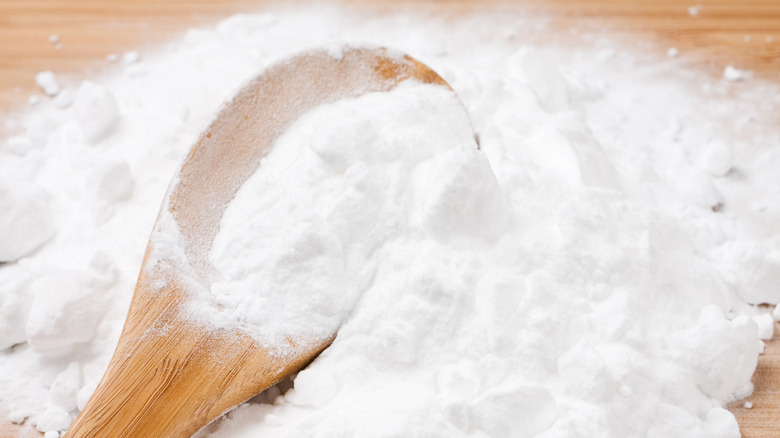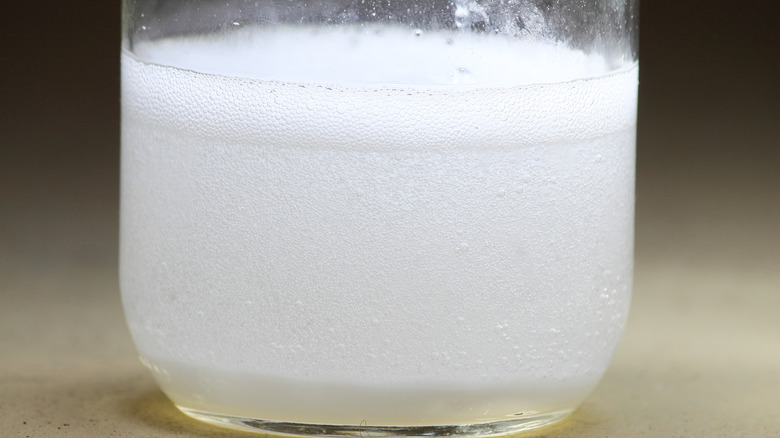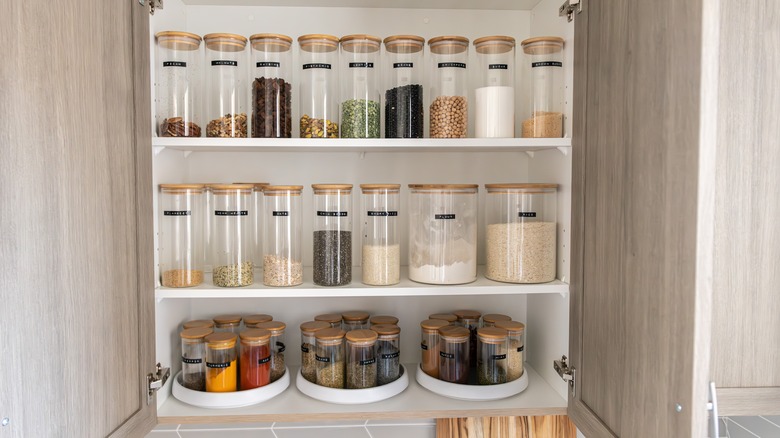The Easiest Way To Test Baking Soda And Powder Freshness
Organizing your pantry and checking pantry items for freshness at least quarterly is a good idea because some, such as baking powder and baking soda, can start to lose their efficacy in just a few months after opening. These pantry staples may seem like they would last a lifetime, but ensuring their freshness can lead to better-tasting dishes.
If you know when you bought and opened your baking soda and baking powder, that's the easiest way to check if they are still fresh. According to the U.S. Department of Agriculture (USDA), baking soda can be stored at room temperature unopened for 18 months. Once you've opened it, it's best to use it within six months. Similarly, the organization says baking powder can be stored at room temperature unopened for six months, but once you've opened it, it's best to use it within three months.
If you don't know when you opened your items, however, you'll want to test them for freshness when you're taking inventory of your pantry because if these items are no longer effective, your food won't rise as it should. The easiest way to do this is by testing each ingredient either with a mixture of water and vinegar or with water alone, a quick experiment that can be even more insightful than the manufacturer-supplied best-by date.
Why do baking soda and baking powder lose their fizz over time?
Even if you do know when you opened your baking soda and baking powder, testing them for freshness can be a bit more accurate and scientific. For baking soda, add a small amount to a bowl or cup of hot water and vinegar. If it fizzes, it's likely still good. For baking powder, add a small amount to a bowl or cup of hot water (but skip the vinegar in this case). If it fizzes, it's likely still good.
When working properly, baking soda and baking powder both release carbon dioxide when they're activated by an acid or liquid. This is where that characteristic fizz comes from during your tests. Over time if exposed to moisture, however, the active ingredients in baking powder and baking soda can break down. If that happens, they won't react to the liquid test and they wouldn't have reacted to the moisture in your recipe either. To help prevent this, you can store your baking powder and baking soda in airtight containers, which may help extend their shelf life.
Why the freshness of pantry items matters
Another important aspect to consider is safety. Even if your baking powder or soda fizzes, does that mean it's still safe to eat? Fortunately, in general, eating expired pantry items probably won't make you sick. According to the USDA, as long as food isn't obviously spoiled, it's likely still safe to eat. That's because the USDA doesn't require companies to include these dates based on safety, except in the case of infant formula.
Instead, best-by dates are based on when these foods will be at peak quality (as determined by the manufacturer), not the safety of the food. In fact, there is no government oversight at all for expiration dates, which means manufacturers are free to estimate these dates based on their own set of criteria. As a result, it can be difficult to know what the various best-by and sell-by dates even mean.
Still, depending on the pantry item, freshness can make or break your dish. When it comes to spices, items past their best-by date won't taste as flavorful, and they may leave your food tasting bland. Food can also lose its nutritional value after being exposed to light and air for an extended period. Using baking soda and baking powder when they're no longer fresh may be safe, but it might also ruin your dish.


